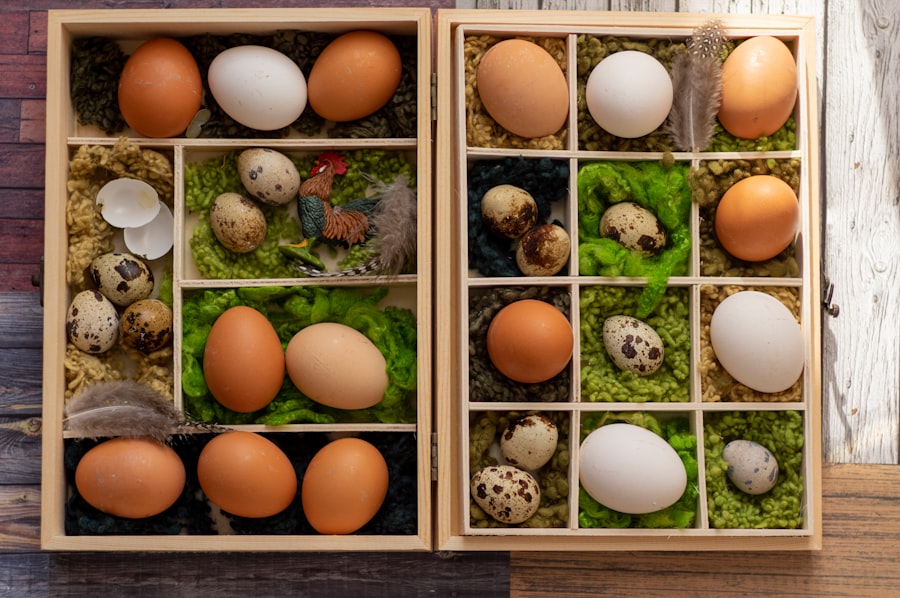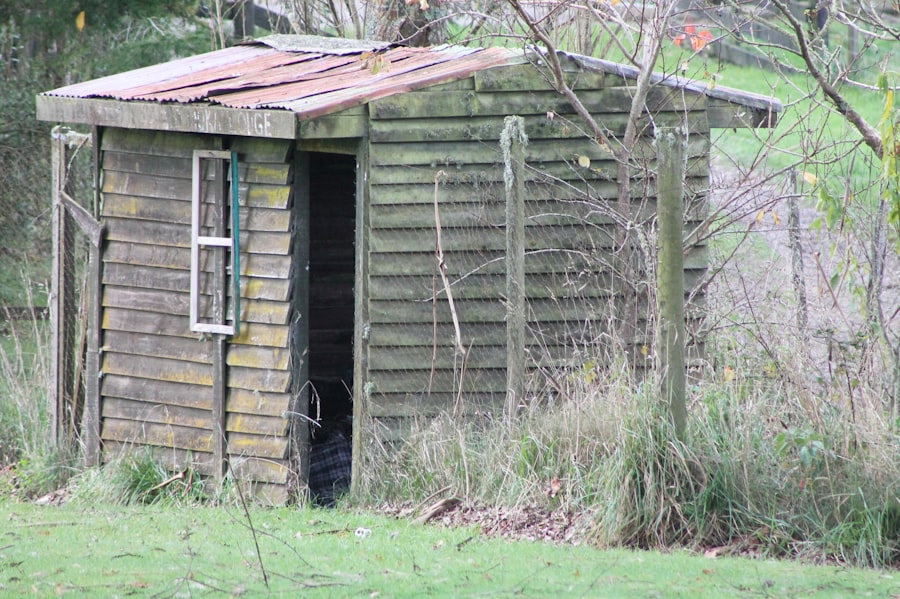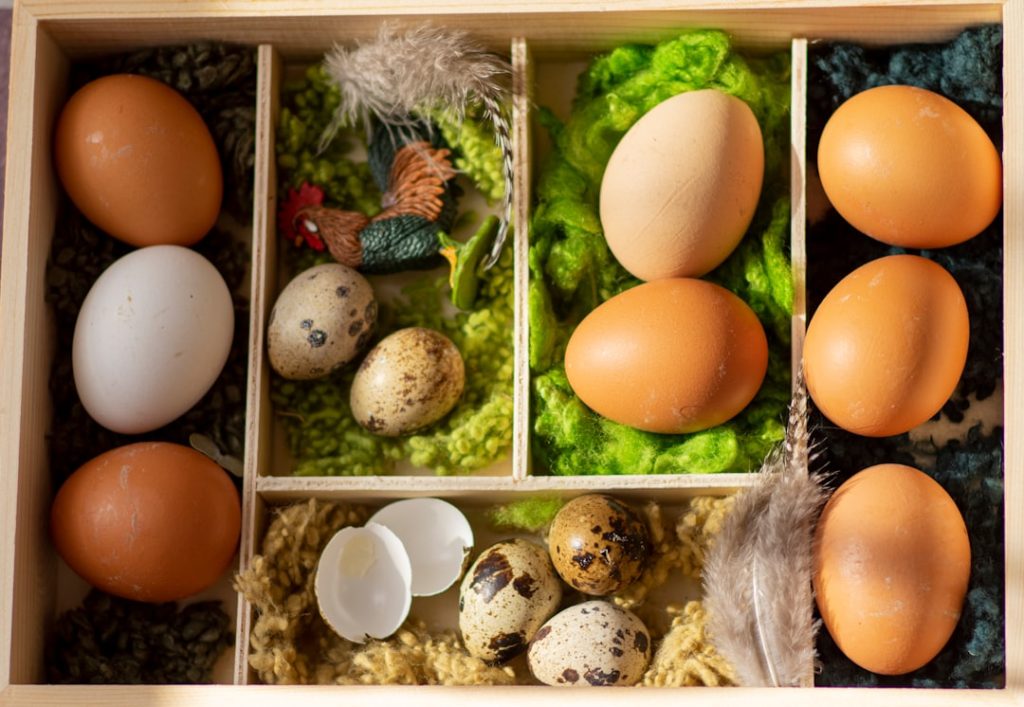Chicken keeping in Jersey has experienced a surge in popularity in recent years, driven by a growing interest in sustainable living and self-sufficiency. This practice is accessible to residents in both rural and suburban areas, offering numerous benefits beyond the provision of fresh eggs. Chickens contribute to natural pest control and produce fertilizer for gardens, while also fostering a connection to nature for their keepers.
In Jersey, raising chickens is not only a personal hobby but also aligns with broader environmental conservation efforts. The practice is subject to specific regulations and guidelines set by local authorities to ensure responsible and sustainable chicken keeping. The environmental impact of chicken keeping in Jersey is an important consideration, with both positive and negative aspects to be examined.
Sustainable coop maintenance practices play a crucial role in minimizing any potential negative effects on the environment. The Environment Department of Jersey provides resources and support for local chicken keepers, assisting them in adhering to best practices and regulations. This support helps ensure that chicken keeping in Jersey remains a sustainable and environmentally friendly activity.
Table of Contents
- 1 Regulations and Guidelines for Keeping Chickens in Jersey
- 2 Benefits of Keeping Chickens for the Environment
- 3 Environmental Impact of Keeping Chickens in Jersey
- 4 Tips for Maintaining a Sustainable Chicken Coop in Jersey
- 5 Resources and Support from the Environment Department for Jersey Chicken Keepers
- 6 The Role of Chicken Keeping in Environmental Conservation in Jersey
- 7 FAQs
- 7.1 What are the regulations for keeping chickens in Jersey?
- 7.2 Do I need a permit to keep chickens in Jersey?
- 7.3 What are the requirements for chicken coops in Jersey?
- 7.4 Are there restrictions on the number of chickens I can keep in Jersey?
- 7.5 What should I do with chicken waste in Jersey?
- 7.6 How can I control noise from my chickens in Jersey?
Key Takeaways
- Keeping chickens in Jersey is a popular and rewarding activity for many residents, providing fresh eggs and a connection to nature.
- Regulations and guidelines for keeping chickens in Jersey are in place to ensure the welfare of the birds and the surrounding environment.
- Keeping chickens can benefit the environment by reducing food waste through composting, providing natural pest control, and producing fertilizer for gardens.
- The environmental impact of keeping chickens in Jersey can be managed through proper waste disposal, coop maintenance, and responsible feeding practices.
- Maintaining a sustainable chicken coop in Jersey involves regular cleaning, proper ventilation, and using natural materials for bedding and insulation.
Regulations and Guidelines for Keeping Chickens in Jersey
Regulations and Guidelines
In Jersey, regulations and guidelines are in place to ensure that keeping chickens is done in a responsible and sustainable manner. Individuals are allowed to keep up to 12 chickens without needing planning permission, as long as the chickens are kept for personal use and not for commercial purposes.
Welfare of Chickens and Neighbors
It is essential to consider the welfare of the chickens and the impact on neighbors when keeping chickens. The Environment Department provides guidelines on the proper care and housing of chickens, including recommendations for coop size, ventilation, and predator protection.
Registration and Disease Control
Chicken keepers are required to register their chickens with the Department of the Environment to help monitor and control disease outbreaks. By following these regulations and guidelines, chicken keepers can ensure that their practice is not only sustainable but also respectful of the environment and the community.
Sustainable and Responsible Practice
By adhering to the regulations and guidelines set out by the Environment Department, chicken keepers can ensure that their practice is both sustainable and respectful of the environment and the community.
Benefits of Keeping Chickens for the Environment

Keeping chickens can have numerous benefits for the environment. One of the most significant benefits is the reduction of food waste. Chickens are excellent at converting kitchen scraps and garden waste into high-quality fertilizer through their droppings.
This not only reduces the amount of waste that ends up in landfills but also provides a natural and sustainable way to enrich soil for gardening. Additionally, chickens can help control pests in the garden by eating insects and other small creatures that can damage plants. By reducing the need for chemical pesticides, chicken keepers can contribute to a healthier and more balanced ecosystem in their gardens.
Furthermore, by raising chickens for eggs, individuals can reduce their reliance on store-bought eggs, which often come from factory farms with questionable environmental practices. By producing their own eggs, chicken keepers can have a direct impact on reducing their carbon footprint and supporting sustainable food production. Keeping chickens can have numerous benefits for the environment.
One of the most significant benefits is the reduction of food waste. Chickens are excellent at converting kitchen scraps and garden waste into high-quality fertilizer through their droppings. This not only reduces the amount of waste that ends up in landfills but also provides a natural and sustainable way to enrich soil for gardening.
Additionally, chickens can help control pests in the garden by eating insects and other small creatures that can damage plants. By reducing the need for chemical pesticides, chicken keepers can contribute to a healthier and more balanced ecosystem in their gardens. Furthermore, by raising chickens for eggs, individuals can reduce their reliance on store-bought eggs, which often come from factory farms with questionable environmental practices.
By producing their own eggs, chicken keepers can have a direct impact on reducing their carbon footprint and supporting sustainable food production.
Environmental Impact of Keeping Chickens in Jersey
While keeping chickens can have many environmental benefits, it is important to consider the potential environmental impact as well. One potential concern is the management of chicken waste, which can contribute to water pollution if not properly managed. Chicken droppings contain high levels of nitrogen and phosphorus, which can leach into waterways and cause algal blooms that harm aquatic ecosystems.
To mitigate this impact, chicken keepers should properly manage and compost chicken waste to prevent runoff into water sources. Additionally, the use of chicken feed should be carefully monitored to prevent overfeeding and excess nutrient runoff from entering the environment. Another potential environmental impact of chicken keeping is noise pollution, as roosters can be loud and disruptive to neighbors.
To address this issue, chicken keepers should consider local ordinances regarding roosters and take measures to minimize noise disturbances. While keeping chickens can have many environmental benefits, it is important to consider the potential environmental impact as well. One potential concern is the management of chicken waste, which can contribute to water pollution if not properly managed.
Chicken droppings contain high levels of nitrogen and phosphorus, which can leach into waterways and cause algal blooms that harm aquatic ecosystems. To mitigate this impact, chicken keepers should properly manage and compost chicken waste to prevent runoff into water sources. Additionally, the use of chicken feed should be carefully monitored to prevent overfeeding and excess nutrient runoff from entering the environment.
Another potential environmental impact of chicken keeping is noise pollution, as roosters can be loud and disruptive to neighbors. To address this issue, chicken keepers should consider local ordinances regarding roosters and take measures to minimize noise disturbances.
Tips for Maintaining a Sustainable Chicken Coop in Jersey
Maintaining a sustainable chicken coop in Jersey involves several key practices to ensure that the environmental impact is minimized while providing a healthy and comfortable environment for the chickens. One important tip is to use natural and sustainable materials for building or renovating a chicken coop. This includes using reclaimed or locally sourced wood for construction, as well as natural insulation materials such as straw or hemp.
Additionally, incorporating renewable energy sources such as solar panels or wind turbines can help reduce the environmental footprint of running a chicken coop. Another tip is to implement sustainable landscaping around the coop, such as planting native vegetation that provides food and habitat for wildlife while reducing water usage and chemical inputs. Finally, practicing responsible waste management by composting chicken waste and using it as fertilizer for gardens can help close the nutrient loop and reduce reliance on synthetic fertilizers.
Maintaining a sustainable chicken coop in Jersey involves several key practices to ensure that the environmental impact is minimized while providing a healthy and comfortable environment for the chickens. One important tip is to use natural and sustainable materials for building or renovating a chicken coop. This includes using reclaimed or locally sourced wood for construction, as well as natural insulation materials such as straw or hemp.
Additionally, incorporating renewable energy sources such as solar panels or wind turbines can help reduce the environmental footprint of running a chicken coop. Another tip is to implement sustainable landscaping around the coop, such as planting native vegetation that provides food and habitat for wildlife while reducing water usage and chemical inputs. Finally, practicing responsible waste management by composting chicken waste and using it as fertilizer for gardens can help close the nutrient loop and reduce reliance on synthetic fertilizers.
Resources and Support from the Environment Department for Jersey Chicken Keepers

The Environment Department in Jersey offers resources and support for chicken keepers to ensure that they are practicing sustainable and responsible chicken keeping. This includes educational materials on best practices for chicken care, coop construction, waste management, and disease prevention. The department also provides workshops and training sessions for new and experienced chicken keepers to learn about sustainable techniques and connect with other like-minded individuals in the community.
Additionally, the Environment Department offers support for disease monitoring and prevention through regular check-ins with registered chicken keepers to ensure that any potential outbreaks are quickly identified and contained. By providing these resources and support, the Environment Department plays a crucial role in promoting sustainable chicken keeping practices in Jersey. The Environment Department in Jersey offers resources and support for chicken keepers to ensure that they are practicing sustainable and responsible chicken keeping.
This includes educational materials on best practices for chicken care, coop construction, waste management, and disease prevention. The department also provides workshops and training sessions for new and experienced chicken keepers to learn about sustainable techniques and connect with other like-minded individuals in the community. Additionally, the Environment Department offers support for disease monitoring and prevention through regular check-ins with registered chicken keepers to ensure that any potential outbreaks are quickly identified and contained.
By providing these resources and support, the Environment Department plays a crucial role in promoting sustainable chicken keeping practices in Jersey.
The Role of Chicken Keeping in Environmental Conservation in Jersey
In conclusion, keeping chickens in Jersey can be a valuable practice for individuals who are interested in sustainable living and environmental conservation. By following regulations and guidelines set out by the Environment Department, chicken keepers can ensure that their practice is respectful of both the environment and the community. The benefits of keeping chickens for the environment are numerous, including reducing food waste, providing natural pest control, supporting sustainable food production, and contributing to healthier ecosystems.
However, it is important to be mindful of potential environmental impacts such as waste management and noise pollution when keeping chickens. By implementing sustainable practices such as using natural materials for coop construction, incorporating renewable energy sources, practicing responsible waste management, and taking advantage of resources and support from the Environment Department, chicken keepers can play a crucial role in environmental conservation efforts in Jersey while enjoying the many rewards of raising chickens. In conclusion, keeping chickens in Jersey can be a valuable practice for individuals who are interested in sustainable living and environmental conservation.
By following regulations and guidelines set out by the Environment Department, chicken keepers can ensure that their practice is respectful of both the environment and the community. The benefits of keeping chickens for the environment are numerous, including reducing food waste, providing natural pest control, supporting sustainable food production, and contributing to healthier ecosystems. However, it is important to be mindful of potential environmental impacts such as waste management and noise pollution when keeping chickens.
By implementing sustainable practices such as using natural materials for coop construction, incorporating renewable energy sources, practicing responsible waste management, and taking advantage of resources and support from the Environment Department, chicken keepers can play a crucial role in environmental conservation efforts in Jersey while enjoying the many rewards of raising chickens.
If you’re interested in learning more about keeping chickens in your backyard, you may want to check out this article on where to put a chicken coop. It provides valuable information on the best location for your coop to ensure the health and safety of your chickens. This article is a great resource for anyone looking to start their own backyard flock.
FAQs
What are the regulations for keeping chickens in Jersey?
The Environment Department in Jersey has specific regulations for keeping chickens, including guidelines for coop size, waste management, and noise control.
Do I need a permit to keep chickens in Jersey?
Yes, you will need to obtain a permit from the Environment Department in Jersey in order to keep chickens on your property.
What are the requirements for chicken coops in Jersey?
Chicken coops in Jersey must meet specific size and construction requirements to ensure the health and safety of the chickens and to minimize any potential impact on the environment.
Are there restrictions on the number of chickens I can keep in Jersey?
Yes, there are restrictions on the number of chickens you can keep in Jersey, and these restrictions are outlined by the Environment Department to ensure that the welfare of the chickens and the surrounding environment are maintained.
What should I do with chicken waste in Jersey?
The Environment Department in Jersey has guidelines for the proper management and disposal of chicken waste to minimize any negative impact on the environment.
How can I control noise from my chickens in Jersey?
The Environment Department in Jersey has specific guidelines for controlling noise from chickens to minimize any disturbance to neighboring properties.
Meet Walter, the feathered-friend fanatic of Florida! Nestled in the sunshine state, Walter struts through life with his feathered companions, clucking his way to happiness. With a coop that’s fancier than a five-star hotel, he’s the Don Juan of the chicken world. When he’s not teaching his hens to do the cha-cha, you’ll find him in a heated debate with his prized rooster, Sir Clucks-a-Lot. Walter’s poultry passion is no yolk; he’s the sunny-side-up guy you never knew you needed in your flock of friends!







